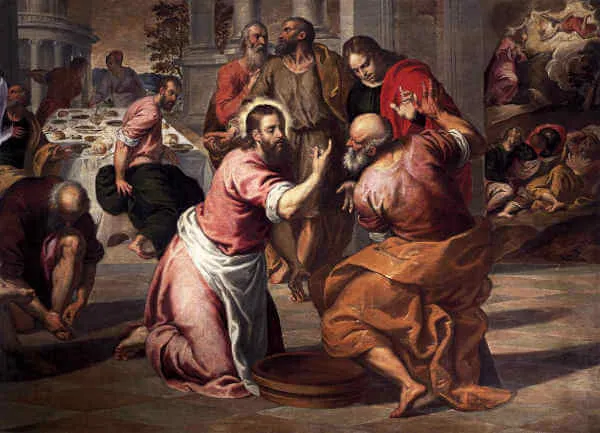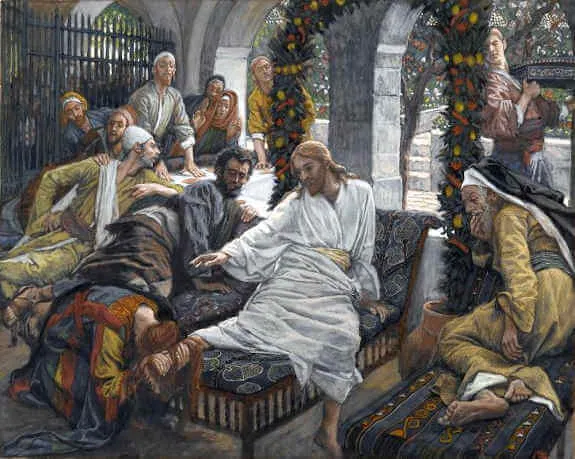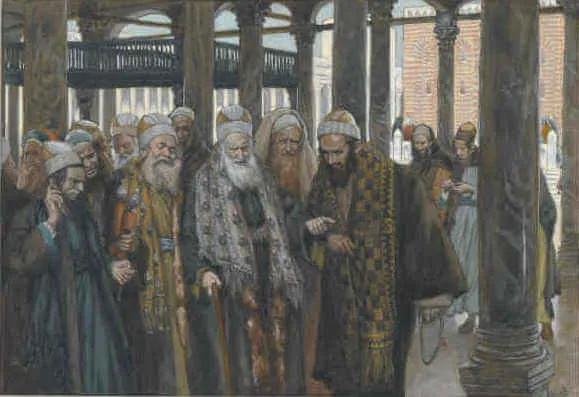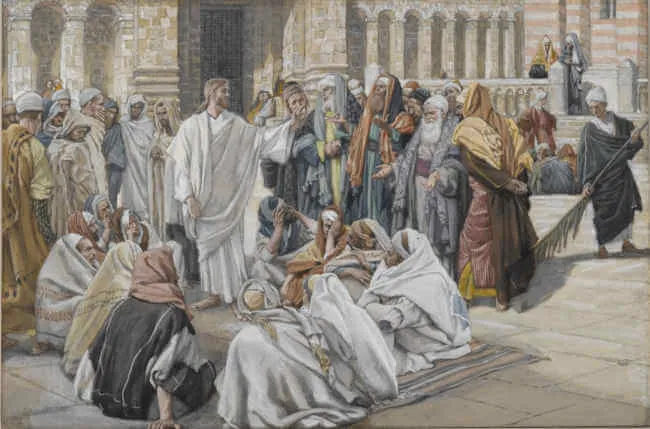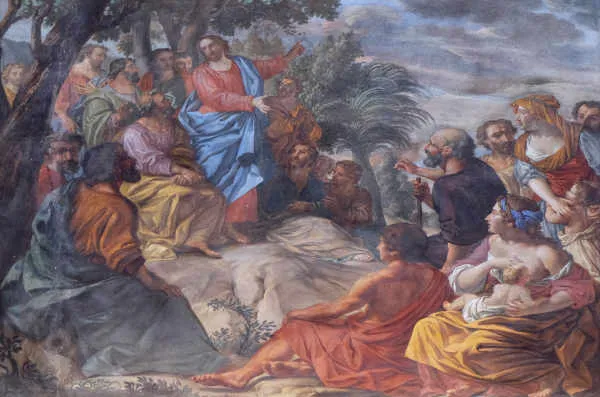John 13:12-15
Our Model for Holiness
Do you realize what I have done for you? You call me ‘teacher’ and ‘master,’ and rightly so, for indeed I am. If I, therefore, the master and teacher, have washed your feet, you ought to wash one another’s feet. I have given you a model to follow, so that as I have done for you, you should also do.
Reflection:
Do you want to be holy? Perhaps this question is not one that everyone will immediately answer with a resounding “Yes.” Sadly, holiness, for some, can seem boring and unattractive. The lure of evil is very enticing on a confused and superficial level. So what is your answer to this question? Do you want to be holy?
As we begin today the sacred Triduum, we enter into the holiest days of the Church year. We walk with our Lord through His final glorification today as He celebrates the Passover with His disciples and enters the Garden of Gethsemane to await His arrest. Tomorrow we walk with Him through the stations of His Cross. On Saturday, we sit in silent adoration of His tomb as we await the Resurrection.
In the Gospel quoted above, Jesus gives us a model for holiness by the witness of His actions. He Who is the God of the Universe, the Creator of all, the Eternal Son of God, the Second Person of the Most Holy Trinity, humbles Himself and takes on the form of a lowly servant by washing the feet of His disciples. He then offers them the Most Holy Eucharist for the first time, before He goes to meet His persecutors.
The model Jesus gives us is a prophetic action by which Jesus tells us that true greatness, that is, true holiness, is found in humility. Holiness is realized in our lives when we turn our eyes from ourselves and love others as their servants.
None of us are the Savior of the World, but each of us must become instruments of His saving act for others. As we accept Jesus’ gift, we must then turn to others and humble ourselves before them. We must help them to see our love and their dignity. We must serve them with humility and put them first. Doing so will then enable us to invite them to imitate us as we imitate Christ. Thus, our humble imitation of Jesus becomes a means by which Jesus invites others to follow Him.
Reflect, today, upon the invitation of Jesus: “…as I have done for you, you should also do.” Jesus gave us everything, so we must give everything to others. We must serve without counting the cost. We must love them, putting their needs before ours. We must become a model of the love of Christ for them. Ponder Jesus’ service today and throughout the Triduum and commit yourself to live the invitation given you by our Lord.
Source: https://catholic-daily-reflections.com/2025/04/16/our-model-for-holiness-2/


